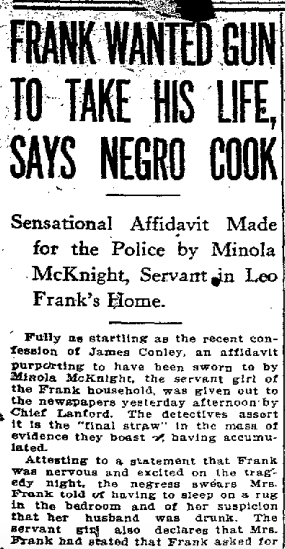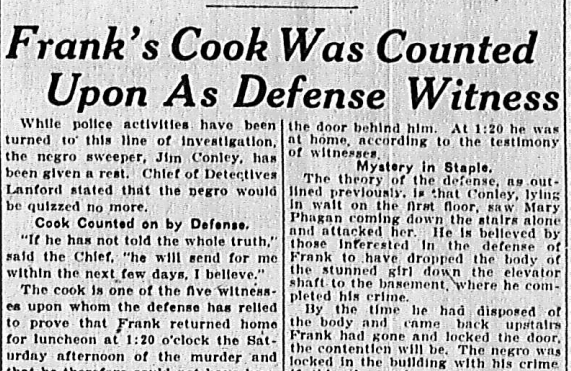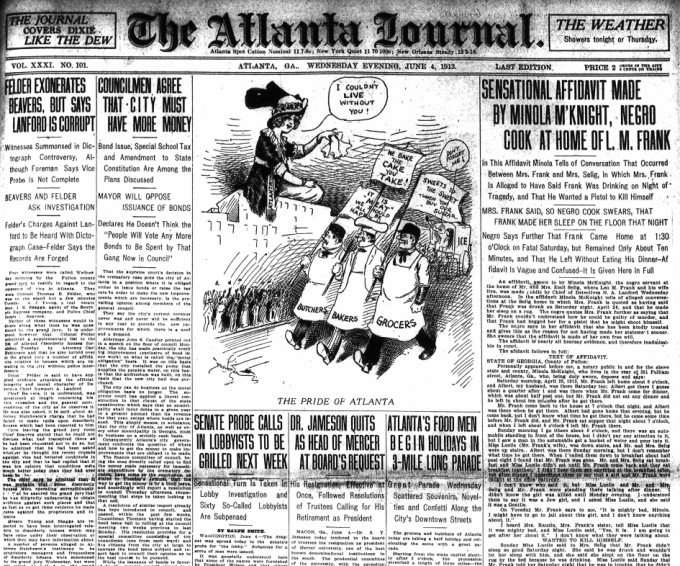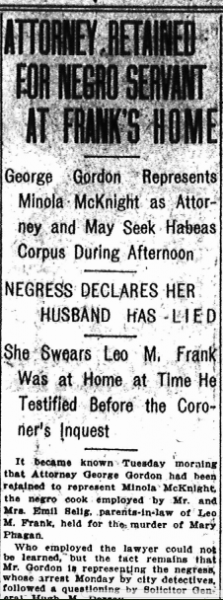Another in our series of new transcriptions of contemporary articles on the Leo Frank case.
Atlanta Constitution
August 2nd, 1913
Albert McKnight, colored, the husband of Minola McKnight, who made a startling affidavit for the police in regard to circumstances at the Frank home on the night of the murder, followed Febuary to the stand.
“What is your wife’s name?” the solicitor asked.
“Minola McKnight.”
“What does she do?”
“Cooks at Mrs. Selig’s home.”
“How long has she held that place?”
“For two years.”
“Where were you about 1 o’clock on the afternoon of April 26?”
Saw Frank April 26.
“I was at Mr. Frank’s home.”
(The Franks have been living with the Seligs, Mrs. Frank’s parents.)







